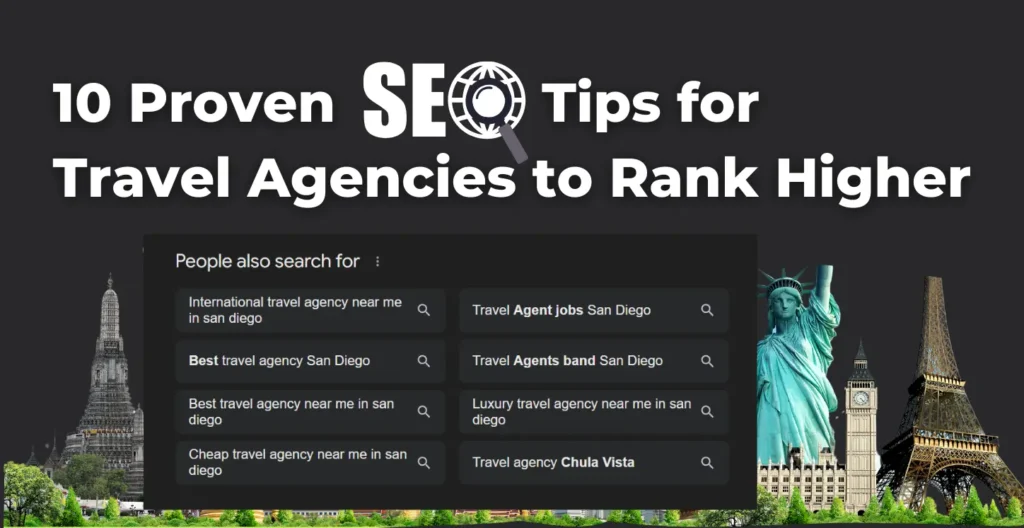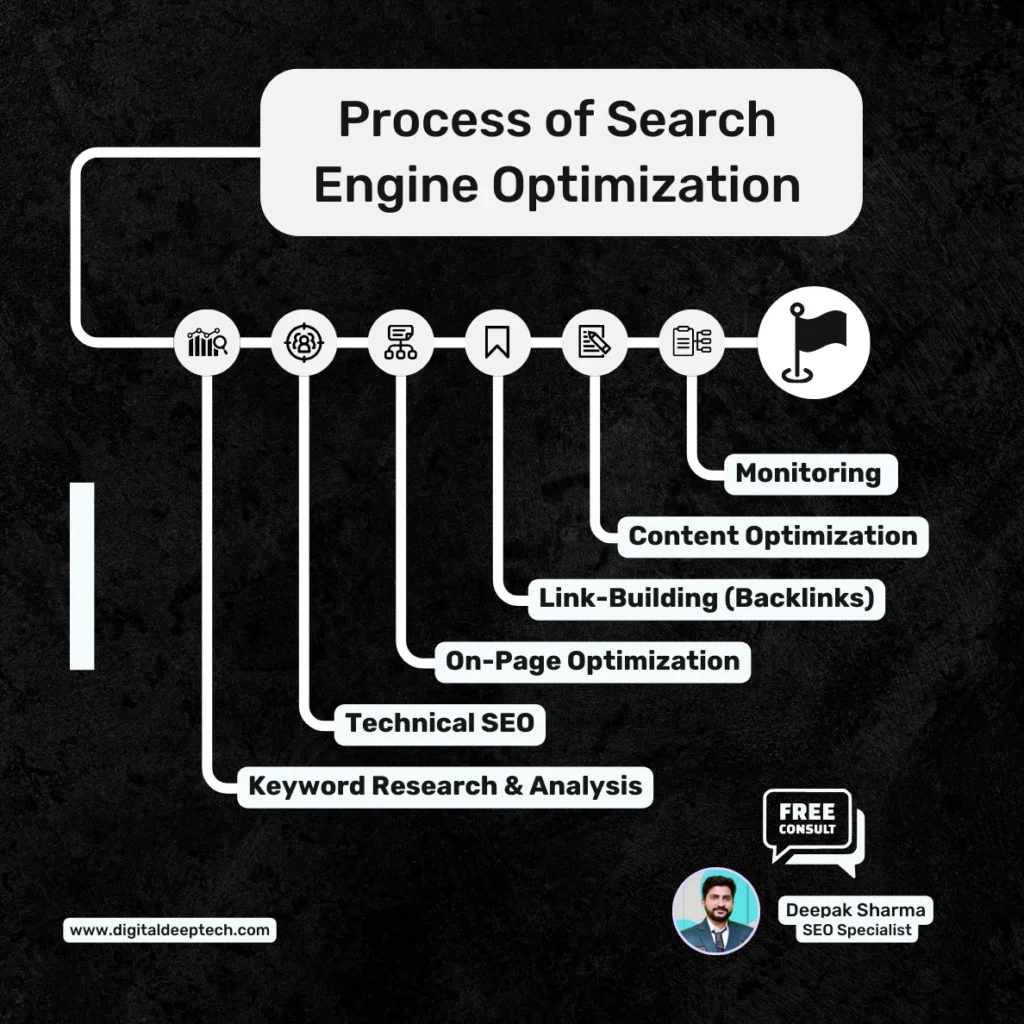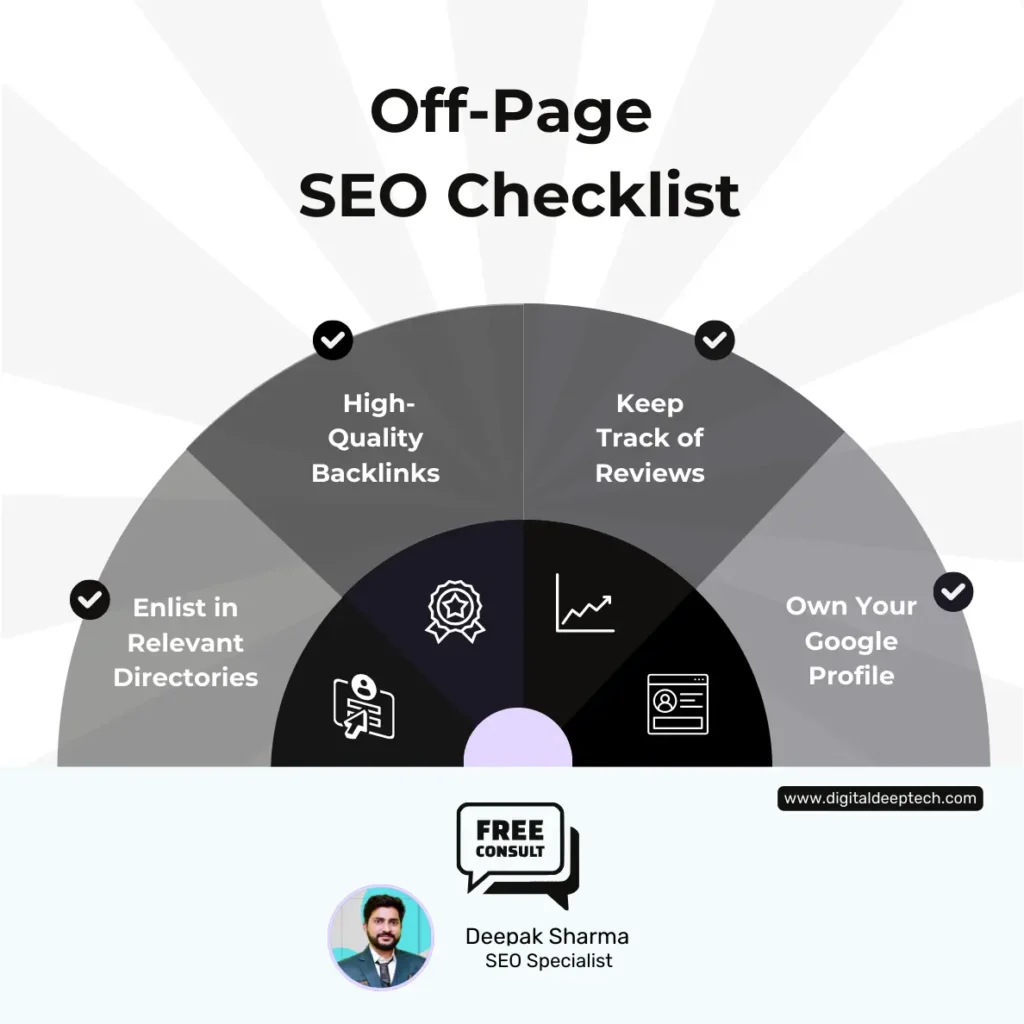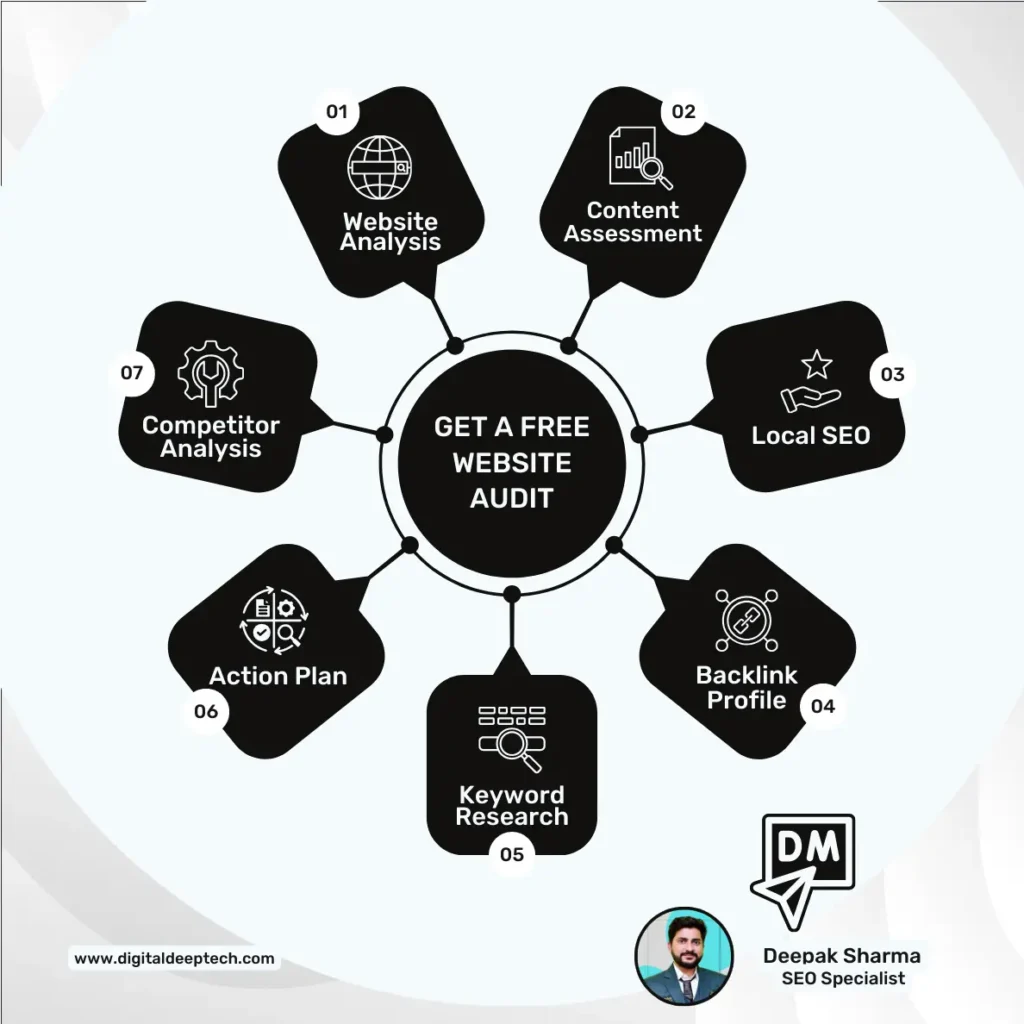10 Proven SEO Tips for Travel Agencies to Rank Higher

Table of the content
Today’s era has brought a lot of competition to the travel industry. As the trend of traveling is increasing among people, travel agencies are putting a lot of emphasis on improving their online presence. For this, they are taking their business online. For this, just having a website is not enough. It has also become mandatory to rank the website on search engines. If a travel agency wants to rank its website on search engines for a long time, it becomes necessary to make its website SEO-friendly.
Why SEO is Necessary for a Travel Website
Why has it become necessary to go into the travel industry? When we search on the search engine with a keyword like “travel agency near me,” we see that there is a lot of competition there. The websites that you see at the top have been working on them for many years, due to which they get repeated traffic from Google and are able to convert their leads. So do you think that your business can also rank on the keywords of the travel industry? Is it possible? Yes, in this blog, we will discuss such points, which will be very helpful in bringing your travel website to the top ranking of Google.
From a traveler’s point of view, when he searches for a travel agency on Google, he checks out the first 4–5 websites and then takes services from them. It is difficult to rank a new website at the top of Google, but if we plan our travel website with the right strategy and SEO tips, then it is possible because the queries of the users may be different. It is very difficult to rank on all queries, but we can do this by optimizing our website related to the keywords on which the competition is low by identifying them.
In this blog, we will discuss 15 strategies that will help you rank your travel agency on top of Google, bring you genuine leads, and increase your friend awareness.
Let's Discuss Your Project
Get a free one-month consultation and share your vision for digital marketing with us.
1. Keyword research is most important
Keyword research plays an important role in any business strategy. We know that in the travel industry, user demand keeps increasing and decreasing according to the season. Keeping this in mind, keyword research strategy plays an important role. On the other hand, the continuous growth of the travel market brings a lot of competition, so in this increasing competition, keyword research strategies and SEO for the travel industry play an important role in presenting a business better than others online.
How do you identify your audience when doing keyword research?
Identifying the target audience of your business becomes very important to growing in the travel industry. SEO for travel websites plays a crucial role here. The travel audience will be those people who are interested in visiting one place after another. So how do we understand who will be the target audience of the travel industry? The answer is those people who depend on travel agencies and are interested in buying travel packages. Identify your travel audience on behalf of their behavior, buying interests, demographics, and age.
- Such as families who like to go on vacation or to auctions to explore new things.
- Some business travelers need to travel from one place to another for work.
- The rest are adventure seekers who want to go to different places and do many activities, like trekking safaris, and want to enjoy them.

How do you do keyword research for the travel industry?
To understand the needs of your target audience, you should research keywords for which the competition is low, the search volume is high, and the traffic potential is high. In cases of low competition, we can rank our website quickly through keywords. To make this easier, we have many tools available online, like Google Keyword Planner, SEMrush, Ahref, and many more. Here are some useful SEO tips for travel websites that help with keyword research in the right way.
Focus on long-tail keywords at the beginning.
At the beginning of a business, we should focus more on long-tail keywords because, to rank a new website quickly, we need keywords on which the competition is low and the volume is high. This will increase the chances of getting traffic.
If a travel website is already ranking on some keywords, then it has two strategies: one, those keywords are already ranked; to bring their ranking to the top, we should improve the content of the website page and write new blogs related to it. Second, to improve ranking on new keywords, we should find new keywords according to the user’s queries, publish new content on them, and get them ranked. Implementing effective SEO for travel websites is essential in both strategies to ensure higher visibility and better search engine rankings.
Keyword ranking depends on the quality of the content and how well you publish quality content that meets the needs of your target audience. Provide your travel audience with solution-based content related to traveling guides and adventure.
Focus on travel-specific keywords.
There are many websites that can give information about planning a trip for your target audience, phrases, and queries, such as Google Trends and Answer the Public. By using these, you can find out what your customer is looking for on the search engine.
By identifying your customer’s queries, a travel agent can identify keywords that have low competition and high volume. For this, you can target those keywords and improve your website’s ranking.
The importance of location-based keywords.
Travelers are interested in visiting historical places, big cities, hill stations, and other famous places. So location-specific keywords matter for travel industry websites. By using niche travel terms to find keywords related to that location, such as “travel packages for Europe” and “travel bookings for Thailand,” After that, create location-specific content for your website to enhance SEO for travel agencies.
2. Optimize Your Website’s Structure
The second most important aspect is to make the structure of your business website user-friendly. Traffic is not achieved by just bringing traffic to the website. For that, emphasis should be given to making the structure of the website user-friendly and not search engine-friendly. It would be right to say this because when a user comes to a travel website, if he does not get a solution to his need or problem, he will leave your website. Due to this, you will not get leads from genuine customers as well. Therefore, it becomes very important for the website to have the correct structure. Here are some useful SEO tips for the travel industry that help optimize website structure effectively.
Make your website clean and user-friendly.
A user comes to the website only when he can book his travel tour in a convenient way at a low price. For this, we should make our booking navigation user-friendly so that he can happily book his tour by properly completing the instructions to get from one place to another. The user’s payment process should also be very easy so that he does not face any difficulty.
The importance of easy navigation.
Apart from this, keep your website clean and add travel-related photos and graphics to it so that it looks good. The content on it should be user-friendly, discuss the pain points of the user in heading tags, explain your offers well, and add the correct information related to all tour packages so that your user gets educated and can make the right booking.
To make your destination page more responsive, give a separate section for each place that contains all the information about where to go, where to stay, and what travelers can do there. Create a separate travel tip page that provides helpful advice to travelers, such as packing tips, travel budgets, how to find cheap flights, and more. Travel websites should have a blog section with travel stories, interviews, and interesting blogs such as the Top 10 Must-See Places in London. Publish content that your travelers like, which will increase your engagement and make people prefer to book from your website. Publishing that type of content is very crucial for SEO for travel agent websites.
Make your own website mobile-responsive.
In today’s time, every traveler uses a mobile phone and wants to book from his phone or tablet. If your website is not mobile-friendly, it will not be accessible on small screens, which will frustrate your loyal customers and prevent you from getting genuine leads. The other aspect of this is that search engines prefer mobile-friendly websites. If the website is not mobile-friendly, it will be difficult to rank on Google, due to which you will not get potential customers.
Fast website loading speed
In this fast-changing time, it has become very important to improve the load speed of the travel website to serve travel patients. It has often been seen that people prefer the website to load quickly. If the travel website takes more time, then the visitors get frustrated and leave the website quickly. It increases the bounce rate of your website and affects the keyword ranking of the website.
For example, suppose you are showing a photo to your friend on your phone, but that photo is not loading due to the internet speed. Due to this, your friend will feel bored, and his interest will go away. This is true. A fast-loading website has a positive impact on your business as the digital customer can easily browse the destination and quickly view their booked trip, which makes them happy. Each happy customer will have a good experience for future business.
How to Check Website Speed and Reduce Load Time:
To check the speed of a website, you can find many types of websites online. The most famous website is Google PageSpeed. By visiting this website, you can check the experience of real users, how the performance of your website is, and what issues are there. By fixing them, you can reduce the speed of your website.
3. Create high-quality and relevant content.
If you cannot explain your services and offers to your audience properly, then it will be difficult to get genuine leads. Quality content plays a role in this, in which you can give a solution to your customer’s problems and pain points by understanding their needs and valuable content. If content is king, then how can we generate leads with quality content? Here are some SEO tips for travel agencies that create high-quality content for their businesses.
Publish regular blogs about travel topics.
You should keep publishing blogs on travel websites on a regular basis. This will maintain your authority in the eyes of search engines, and new users will keep coming to you. The thing to remember is that your blog should be SEO-optimized. Find topics for blogs that talk about destination guides, travel tips, new adventures, and more. Apart from this, you can also search for new topics on your competitor’s website, where new blogs have been published. Do research thoroughly so that your blog can get traffic from search engines.

The importance of engaging and informative content
The advantage of putting informative blogs on the site is that it builds trust, authority, and brand reputation in the eyes of your users. This makes your traffic users feel that you are an expert in the travel industry and we should take services from you, on which people will come to you for booking.
Incorporate keywords naturally.
Keywords play a crucial role in travel blogs. Before writing a blog, you should decide on your focus keyword. Use it in the title and heading of the blog. Include keywords in your content as well. Remember that it should not affect the quality of the content. Use synonyms of keywords because users search with different synonyms on search engines. It helps to rank your blog on different keywords.
Your main keywords should be in the website URL, in the title text, in the description, and in the paragraphs. Avoid keyword stuffing and keep only relevant keywords in your content.
Apart from this, do internal linking on relevant keywords to link the pages of your website by placing other element keywords in the image art text of your website page. By doing this, it will be easy for the search engine to understand the structure and content of your website.
Read more on how to create content that converts leads.
4. Optimize on-page SEO elements.
How will search engines understand whether your travel website is relevant to specific searches or not? The simple solution is to do on-page SEO on your website. This will help your website rank higher in search engines. There are many such on-page SEO factors that need to be optimized according to the search engine, which are as follows:
- Optimize the title and description of the website.
- Optimize the heading titles, such as h1, h2, h3, and image alt text, according to the relevant keywords.
- Add the main keyword to the URL of the website pages.
To increase the readability of the website, use clear headings, subheadings, bullet points, images, and engaging content. There is no need to use keywords. Focus on the user experience of the website, which will create a natural reading flow. Add synonyms of keywords in context, as the user’s queries may be different. The website pages should have engaging calls to action, such as “Book Your Dream Vacation Today’. Along with this, use high-quality images, graphics, and videos so that you can showcase your travel services well and the user gets a good experience.

5. Implement local SEO strategies.
For local SEO for travel companies, keep analyzing your competitors and implementing your local scope strategy by understanding them. Optimize your Google My Business profile properly to get it ranked on Google Maps. Positive views of customers on your Google My Business profile will increase your local sales and increase your customers’s trust. Here are important local SEO tips for travel websites to enhance your online presence.”
Optimize for Google My Business.
If you have not created a Google My Business listing for your business, then you must create one. This will help you with local SEO, and local customers will come to you for service. To optimize your Google My Business listing, submit the details, like name, address, phone number, website, etc., correctly.
Keep updating your GNB profile from time to time and add fresh content like photos and descriptions of your travel services for a specific offer. This will help you increase your customer base and get positive reviews. It will boost your local ranking and make your listing trustworthy.
Use local and location-based keywords.
Understand the needs of your local customers. Add location-based and local search term-based keywords to your website content. Find out which locations and regions are of interest to travelers. Create a separate page for each destination and add your offers, highlighting attractions, and travel tips to them.
Optimize Content for Voice Search
In today’s time, people trust voice searching more than typing. For local SEO for travel brands, add the search terms that are being used in voice search to your website. Keeping in mind the needs of your local customers and optimizing the website accordingly, such as “What are the best hotels in Hawaii?”
Accelerated Mobile Pages (AMP)
As we have read above, why is it important for a travel website to be mobile-friendly? Travelers do not like to wait. To make your travel website mobile-friendly, you can use Accelerated Mobile Pages (AMP), an open-source HTML framework that makes your content pages load consistently fast.
It has been observed that regular travel websites open very slowly on the phone because they have a lot of fancy features that take time to load. AMP speeds up the website by cutting out the fluff and making it fast. AMP helps your website appear in the top searches of search engines where travelers are querying for vacations.
6. Build quality backlinks.
When a high-authority travel website gives you a backlink, it means that the website says, “This travel website is very good.” Search engines consider these things very valuable, consider those websites reliable and trustworthy, and rank them on search engines. So quality backlinks play a crucial role in the ranking of a travel website.
If a high-authority travel website gives a backlink to your website, then one of its advantages is that there is a possibility of getting traffic from your website to another website through those backlinks. Link building is a very good SEO strategy for travel agencies to bring new users to their websites. Read the following SEO tips for the travel industry to help create quality backlinks:

Start Guest Blogging and Partnerships
The best way to get backlinks from high-authority travel websites is to have a good experience with guest blogging. Seeing this, writing an SEO-friendly blog, getting it published on another high-authority travel website, and getting backlinks from there. Writing a good blog will take time, but its benefit will be that you will get quality backlinks and increase organic traffic and keyword ranking. Apart from this, there are many other tasks through which you can get quality backlinks, such as business listings, social bookmarking, classified ads, podcast submissions, video submissions, image submissions, question-and-answer submissions, forum submissions, press releases, and more.
High-quality backlinks bring genuine users to your website, and along with that, your website’s ranking also improves. But in this process, it is often seen that many travel websites try to make as many backlinks as possible. It is not necessary to do so. There is a need to make quality backlinks instead of making too many backlinks. It is important to get backlinks from good, high-authority websites that give you do-follow backlinks that the search engine considers and ranks your website.
Directory Listings and Travel Portals
To find and get your travel business listed in travel-related directories in your region, you need to prepare a compelling description of your website, highlight features, high-quality images, and relevant keywords. This will increase your online search visibility, and you will start getting leads along with customer trust. While listing your business, do add NAP (name, address, and phone number) details. It should also include your business name, business address, business mobile number, and website URL.
Update your local directory listings regularly. Highlight descriptions with special offers and fresh content. Keep your information accurate so that users can maintain your trust.
7. Leverage social media for SEO.
Social media plays a major role in the brand awareness of a business. Today, travelers have mobile phones through which they use Facebook, Instagram, Twitter, LinkedIn, and many other social media apps on a daily basis. To grow your business in the travel industry, it has become necessary to stay connected with social media. Through social media, your audience will remain connected with your business, and you will keep telling them about new updates related to your business.
Share your content on a regular basis on social platforms.
To increase your business engagement, you should regularly publish content on social media. The content can be of many types, such as images, videos, infographics, memes, etc., so that you can educate and entertain your audience. Along with this, you should keep publishing contacts regarding information about your best offers and travel destination guides. You can create a social media calendar and set up weekly and monthly content accordingly.
Use social media to build brand authority.
Social media platforms play a major role in bringing traffic to your website. By placing a call to action (CTA) on social media posts, people visit your website and get to know more information, details, and offers about your travel services.
Along with this, you should also show your audience your positive customer reviews and testimonials. This is also a part of your social media content. Apart from this, add polls and contests to your content, which will let you know about user interests and behavior.
Answer common traveler questions.
Post engaging content on social media platforms so that your followers keep increasing. Create your contact according to your audience’s choice. Join communities related to the travel industry. Keep participating in their discussions. This will increase your brand engagement, and people will like to know about your services.
Respond to audience questions in the tribal community, understand their problems, and give them the right solution-based answers, which will increase their trust in your business and enhance engagement and brand awareness.
8. Use Schema Markup
Schema markup is a special translator that helps search engines understand the content of your travel website. It has many benefits. Schema markup allows us to add rich snippets to our search results. Through this, you can add star ratings, photos, prices, event dates, and more.
Schema markup helps you better target your target audience and bring in relevant traffic. It clarifies a variety of details, such as hotel amenities, types of tours, and specific attractions on your website. It also helps you match search engine queries with your website content.
How to Implement Structured Data in Schema Markup
You will find different types of scheme markup for local SEO for travel websites, such as tourist attractions, events, offers, reviews, lodging businesses, and more. Make your information richer and more discoverable by installing the markup that suits your business on your website.
To generate the schema markup code, you can go to the schema.org website and generate the code by choosing the relevant scheme type there.
After creating the code, integrate it into your website. For this, you can also seek the help of a professional website developer. After this, validate and test it once to see if the code has been integrated properly or not.

9. Monitor your SEO performance.
After implementing local SEO for travel websites, it is very important to analyze the results. You should be ready from time to time to monitor the performance of your website. In this, you should monitor the ranking of the website, the content of the website, and the structure of the website properly and check at which position your keywords are appearing in Google’s search results. This monitoring should be done weekly or monthly so that you remain up-to-date. Following SEO tips for travel agencies helps to instantly check website performance.
Use SEO tools.
For this, you will get both free and paid tools. Google has two free tools: Google Analytics and Google Search Console. Using this, you can monitor your website, analyze traffic, resolve issues on the website, and make new strategies. In the paid tool, you will find SEMrush and Ahref, which will help you do advanced research, including keyword research, competitor research, website audits and analyses, and much more.
Track key metrics.
Using these tools, you can track your metrics like organic traffic, bounce rate, conversion rate, keyword ranking, domain authority, etc. This also helps you check whether your current strategy is compatible with your results. Monitoring SEO performance is an ongoing process in which we periodically create new strategies to increase our website’s visibility, attract new audiences, and convert them into leads.
10. Stay updated on SEO trends.
As time passes, technology is also increasing, and search engines also keep making new changes to their algorithms to improve their search results. Nowadays, search engines do not bring any updates, so it is often seen that the ranking of the website keeps going up and down.
Whenever the ranking of a keyword goes down, the traffic to the website decreases. The reason for this is that we do not optimize our website from time to time and do not change our strategy according to the new algorithm. The same thing happens for travel websites as well. So the biggest question that arises is: how do we keep up with the new trends in search engines?
Hire a freelance SEO expert for your travel website.
Subscribe to search for reputable blogs and publications to get notifications whenever new updates are released. Also, keep reading about the latest trends and algorithm updates, and search for best practices on online reporting websites. Another way is to attend industry events and webinars, including conferences, workshops, and webinars on how search engines are updating.
Follow industry blogs and news.
If you have a low budget, then hire a freelance SEO expert for travel websites who will help you optimize your website from time to time, and your website’s ranking will be maintained. Keep working on new strategies to beat your competitors and know how we can implement them.
Conclusion:
In this blog, we have explained in detail that these 10 SEO tips will take your travel website to the next level. By implementing these SEO tips for travel agencies, you can rise to the top of the Google rankings. Remember, SEO is an ongoing process. It may take time to get results, but the results will be consistent and will remain on Google for a long time. If not today, then tomorrow you will have to work on SEO and bring in new customers. By using these 10 SEO strategies, you can bring genuine customers to your website, which will bring you leads.
If you also want to bring your travel website to the top of the search engine results, then Digital Deep Tech gives you affordable SEO packages, by choosing which you can make your travel website SEO friendly. Our services and strategy are different from those of all other companies, which will help you create a new identity as a travel agency. Book an online meeting with our professional SEO experts today for travel SEO services and get a free audit of your website.